Read “How to lie with maps” by Mark Monmonier with us!
January 29th, 2025
6 min
This article is brought to you by Datawrapper, a data visualization tool for creating charts, maps, and tables. Learn more.
Hans Rosling´s “very last battle to fight devastating global ignorance”
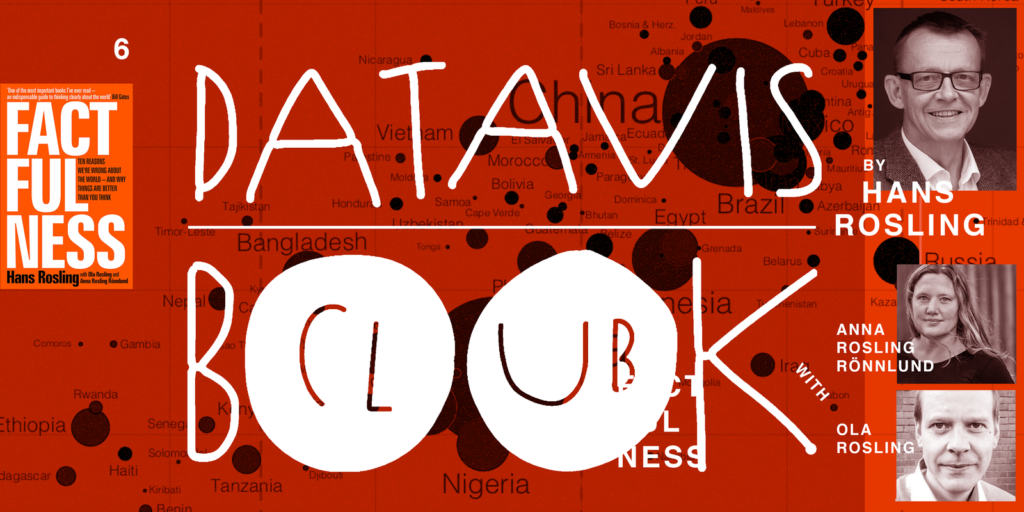
After the success of reading & discussing RJ Andrews’ “Info We Trust”, I finally announce our next book: “Factfulness: Ten Reasons We’re Wrong About the World – and Why Things Are Better Than You Think” by Hans Rosling, Ola Rosling and Anna Rosling Rönnlund.
We will discuss Factfulness on Tuesday, 7th of May at 5pm UTC here: notes.datawrapper.de/p/bookclub-rosling. That’s 10am on the US west coast, 1pm on the US east coast, 6pm for readers in the UK & Portugal, 7pm for most other Europeans and 10.30pm in India.
New: Chris Knox, data editor at the NZ Herald, will host a second meeting in the same notepad on Wednesday, 8th of May at 3pm in Singapore/China, which is 4pm in Japan, 5pm in Sydney & 7pm in New Zealand. Thanks, Chris!
Hans Rosling needs little introduction in data vis circles. He’s famous for explaining how our world is developing – with lots of charts and lots of enthusiasm. Most people know him from his TED talks and Gapminder.org (a foundation he co-founded with his son Ola and Ola’s wife Anna, both co-authors of Factfulness).
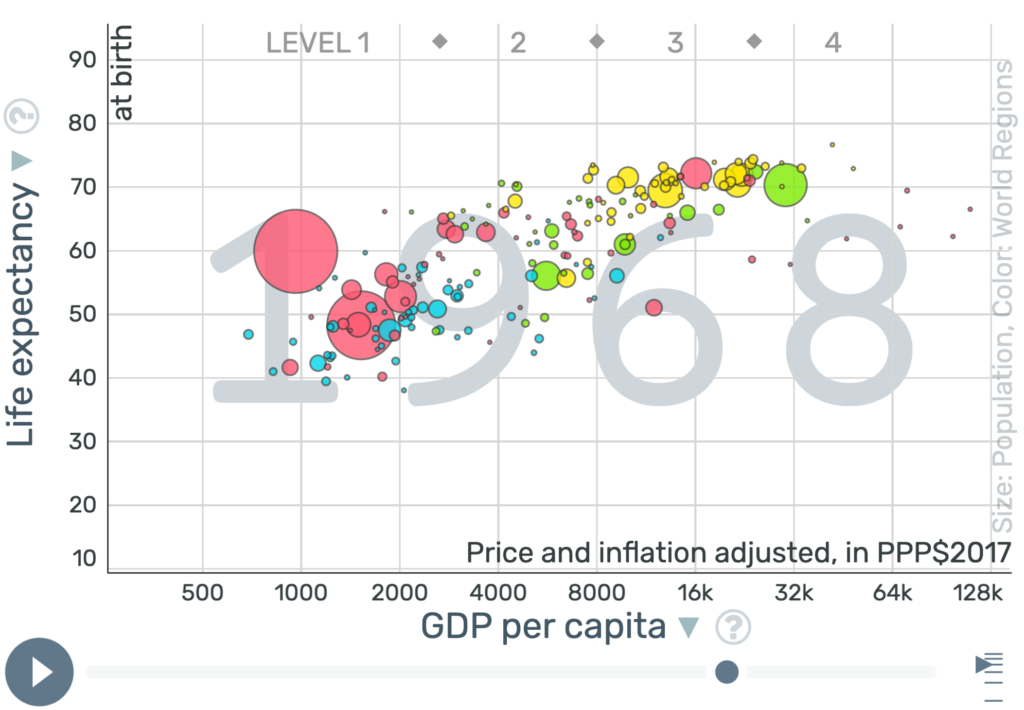
In Factfulness, Rosling went one step further: He not just tried to give us an accurate view of the world we live in. His main incentive was to make us understand why it’s so hard to get an accurate world view in the first place:
This is a book about the world and how it really is. It is also a book about you, and why you (and almost everyone I have ever met) do not see the world as it really is.” – Factfulness, page 17
Rosling’s book reminds us of our own biases – or “dramatic instincts”, as he calls them. We need to be hyperaware of these biases. They’re not just bad for our own understanding of the world. They’re also bad for the understanding of the world of our readers: As people who communicate (data), biases will sneak into our work and procreate in other people’s minds. Rosling shows us how to avoid falling into instinct traps.
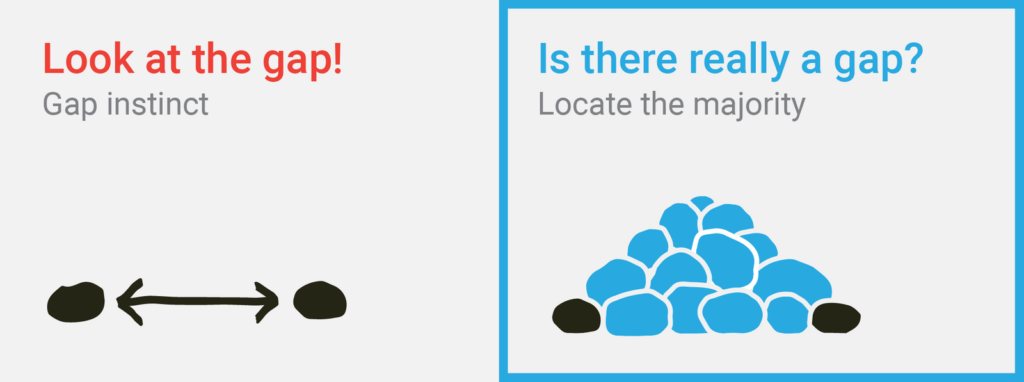
Read Rosling’s book with us if you want to
Don’t read Rosling’s book if you want to
If you still need convincing, read what data journalist John Burn-Murdoch has to say about the book:
Just [belatedly] finished reading Factfulness.
— John Burn-Murdoch (@jburnmurdoch) April 3, 2019
One of the most important and immediately practical books I’ve ever read, and especially critical today.
Hugely recommend it — you’ll learn a lot, and be made aware of a lot of your biases.https://t.co/l379maZqNH pic.twitter.com/xLJoLZvhOT
1. You get Factfulness. Ask your local library to order it for you, buy it, borrow it from a friend, ask around on your preferred social network. Factfulness is also translated into currently 13 different languages, so feel free to read the book in the language of your choice.
2. We all read the book. That’s where the fun begins! Please mention @datavisclub or use the hashtag #datavisclub if you want to share your process, insights, and surprises – I’ll make sure to tweet them out as @datavisclub, as motivation for us all.
3. We get together to talk about the book. This will happen digitally on Tuesday, 7th of May 2019 at 5pm UTC over at notes.datawrapper.de/p/bookclub-rosling for the one half of the planet, and on Wednesday, 8th of May at 7pm New Zealand time for the second half.
It won’t be a call or a video chat; we’ll just write down our thoughts. The discussion will be structured into three questions:
During the conversation, I’ll ask these three questions in the following order:
1 What was your general impression of the book?
2 What was most inspiring, insightful & surprising about the book? Explain how a sentence, chapter or the whole idea of the book challenged something you assumed.
3 Having read the book, what will you do differently the next time you visualize data?
For each question, you can prepare an answer in 1-2 sentences and paste it into the notes once I ask the question during the conversation. If you can’t find the time to prepare anything at all just come by and chat – we’ll quickly get into discussion mode.
In Factfulness, Rosling leads you through the ten following Dramatic Instincts and gives you some Rules of Thumb to encounter them. You can download them as two separate posters from the Gapminder site. They are under Creative Commons license, so I decided to bring them both together in one overview:

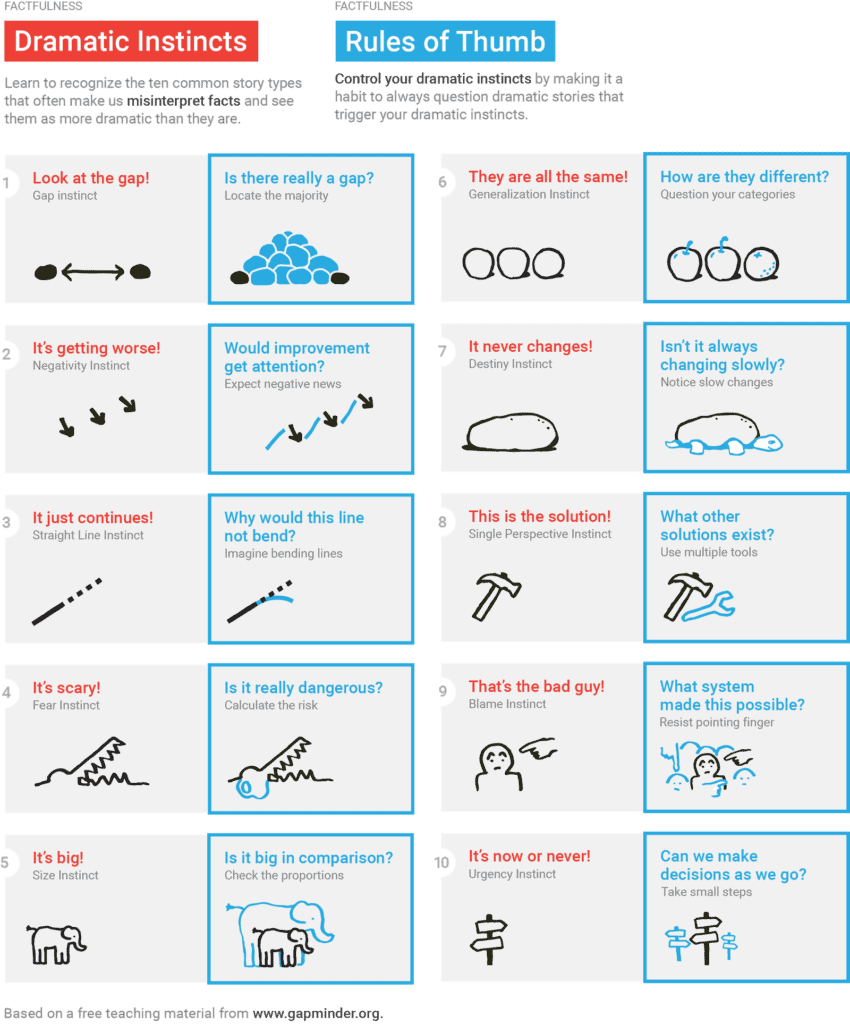
Like the original posters, it’s under CC license, so feel free to share or adopt.
Here’s a short FAQ for you, in case you have more questions:
So what will happen, exactly, during the book club?
A digital book club is a new experience for many of us. See how our book club discussions have looked like in the past:
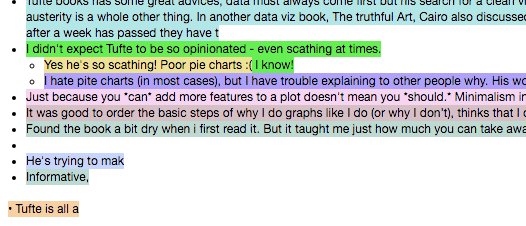
You can also read the review of the first book club, to learn how people found the experience.
Why don’t we do a call? Why the notepad?
Because it works well for introverts & people who prefer to stay anonymous in the discussion. Plus, the documentation of our meeting writes itself. But if you’d like to organize a call, go ahead! I’m sure that lots of people would be interested. I’m happy to support you.
I can’t make it on this date / this time.
Do you have a lunch date? Vacation? Need to bring the kids to bed? No problem! The conversation will be archived in the notes and can still be extended over the next day(s).
Will there be local meetups?
I’d be thrilled if you’d organize a meetup in your city! If you look for attendees, make sure to mention @datavisclub, and I’ll spread the word. However, I won’t organize a local meetup in Berlin this time.
I’m very, very much looking forward to reading “Factfulness” with all of you. If you have any more questions, write in the comments, at lisa@datawrapper.de or to Lisa / the Datawrapper account on Twitter. Also, make sure to follow @datavisclub, to stay up-to-date and get a dose of motivation from time to time.
Comments